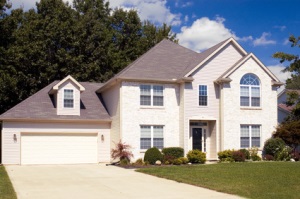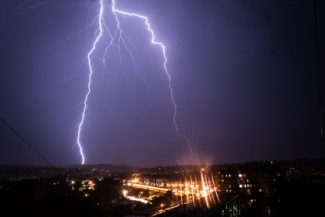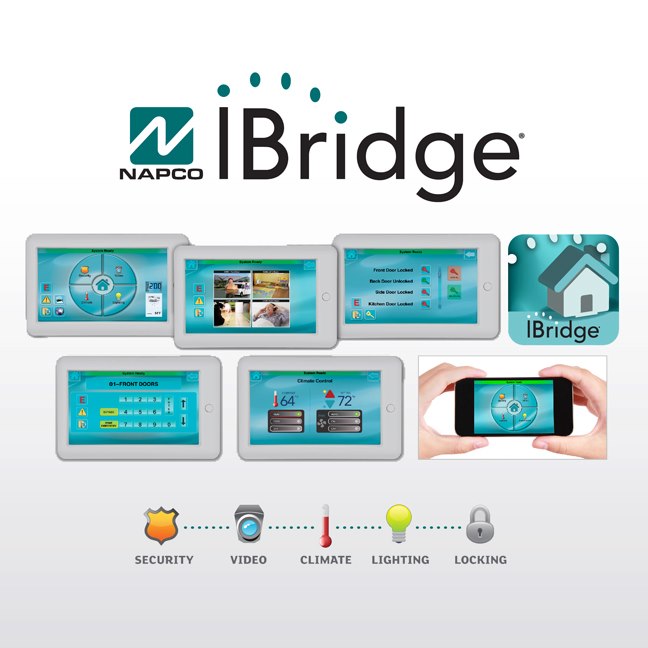
Super User
Fusce adipiscing viverra auctor. Integer lacinia blandit est, vitae dapibus justo facilisis consectetur. Praesent lacinia, ante sed tempus convallis.accumsan magna, nec sagittis odio augue id velit.
Invasion of Privacy or a Necessary Cost of Protection?
The idea of increased security measures in both schools and work places has become an increasingly hot topic of conversation in recent years. Given the senseless acts of violence that have erupted throughout schools in recent years, increased video surveillance in school hallways should not even be a talking point.
The bottom line is that as a parent or as an educator, you want children to be safe when they get on the school bus in the morning. You want to take any, and all, necessary measures to make sure that acts of violence do not occur. Multiple school administrators throughout New England have taken steps toward installing video monitoring systems throughout their schools, which has recently gained notoriety and generated a lot of gripes from affected students.
Students believe that by schools implementing these changes, administrators are blatantly spying on them, leaving students with zero privacy. Whereas school administrators and parents are fully supportive of these changes with the belief that protection of the students is key, regardless of the cost. While these changes need to go through many steps before they are actually implemented, students have been raising contrary viewpoints, which they hope will lead to eliminating any video monitoring of their school hallways.
How do you feel about this?
Do you agree that school administration must do everything in their power to protect their students? Or do you agree with the student's right to privacy by not allowing the additional security that video monitoring may provide?
Importance of Environmental Systems
Being a homeowner comes with much responsibility. Problems arise and you need to handle them properly in order to prevent these occurrences from happening further down the road again and again. One major problem that oftentimes goes unnoticed is the problems dealing with hot or cold temperatures given the time of year.
By adding a temperature detection sensor to various rooms, you will be able to detect when the room temperature falls out of a specified range, either too cold or too hot. During the colder months of winter, a home is at risk of the possibility for frozen pipes. Needless to say, this is a headache that you wish to avoid as much as possible, as the damage caused by a frozen pipe can be quite extensive, and ultimately quite expensive to repair. By having these sensors in each heating zone, you will be able to keep a closer eye on whether things are right where you want them, or if they are falling out of place.
In addition to temperature detection systems, with the world becoming more and more technologically dependent, there are multiple vehicles to monitor and adjust your home or business’s utility systems from the convenience of your cell phone. With more and more programs popping up, allowing an individual to remotely adjust the temperature of the house, or to turn the lights on or off, it is making things very simple for people to keep close watch over how money is being spent. Explore whether any of these systems might be of interest to you, and you will be astonished at the amount of time and money you will save in the long run. Again, being a homeowner can be tiresome, so why waste it on something that is preventable?
If you have any question or are in search of additional tips and tricks, let us know at TascoSecurity.com.
Do you monitor your home temperature? Tell us on Facebook.
How to Protect Your Home While away for the Holidays
 The holiday season often involves travel, as many families will leave their home to spend time with relatives and friends, usually over the span of a few days. Going away from home can provide a change of scenery, yet it also creates a sense of worry for some homeowners. Leaving a home for days on end can increase intrusion risk if certain precautions aren’t taken beforehand, and risk increases even more without a proper security system. Fortunately, there are simple things any homeowner should keep in mind before heading off for the holidays.
The holiday season often involves travel, as many families will leave their home to spend time with relatives and friends, usually over the span of a few days. Going away from home can provide a change of scenery, yet it also creates a sense of worry for some homeowners. Leaving a home for days on end can increase intrusion risk if certain precautions aren’t taken beforehand, and risk increases even more without a proper security system. Fortunately, there are simple things any homeowner should keep in mind before heading off for the holidays.
Here are some of the most important things homeowners should do before going to celebrate this holiday season:
- Don’t Broadcast Travels Until After the Fact. Social media is a great way to keep connected with family and friends; however, it also increases intrusion risk. If homeowners broadcast their upcoming trip on social media, especially if privacy settings on these accounts aren’t controlled, more people (including strangers) can see this news. This can leave the home open to anyone during the trip.
- Use Light Timers. A timer on a home security system or lighting system can create the illusion that someone is home, even if they are away for days or weeks. Having lights activate on its own can make it seem as though someone is home, reducing the likelihood of invasion.
- Keep Valuables Hidden. To further improve security of personal items, keep valuables hidden from plain view. Valuables should be kept in a safe hidden in the basement or attic, or somewhere that is out of sight. Keep the house clean and tidy and have shades drawn during the trip.
- Lock Backdoors and Windows. Many burglaries occur because the intruder was able to get through a backdoor or window. Make it challenging for this to happen by first locking all doors and windows. Barricade back and side doors to improve security.
How are you preparing your home for holiday travel? Share with us on Facebook!
How Social Media is Putting the New Cop on the Corner
Police forces have leveraged social media to the point where common cyberspace platforms like Twitter and Facebook are changing the way forces of all sizes do their work.
Here's a great example. Timothy J. Henton writes on the FBI's website that social media is in fact on its way to becoming the modern version of the cop on the corner. His article talks about how many law enforcement officials are coming to see social media as a way to inform the public directly without going through more traditional media outlets.
Beyond social media's ability to connect us and keep everyone informed and safe directly, police forces are seeing the benefits of using CCTV Camera Systems to get still pictures and video to use in conjunction with platforms like Facebook. Industry websites like Security Management offer articles on the tips these pictures and videos can bring to investigations. Bringing these types of technologies together will be one of the challenges that modern police forces will face going forward and the smart money will bet on mobile applications finding their rightful place in the mix.
There's little doubt social media is changing the way police do their work, but that doesn't mean having a cop on the corner via Twitter will take the place of conventional Life Safety Systems or Environmental Systems when it comes to home or business security anytime soon. For example, technologies like burner-lockout sensors that detect when a heating system goes into lockout mode and other home or business security modules that control functions like lighting and appliances are better controlled for now with access from a touch tone phone.
Still, all eyes are on the ability of social media to find common ground with these more traditional hardwired technologies to allow police to do their work in more innovative ways in the not too distant future.
Sources:
http://www.tascosecurity.com/
http://www.tascosecurity.com/products-services/camera-systems
http://www.tascosecurity.com/products-services/life-safety-systems
http://leb.fbi.gov/2013/september/interactive-social-media-the-value-for-law-enforcement
http://www.tascosecurity.com/products-services/environmental-alarms
http://www.securitymanagement.com/article/police-embrace-social-media-009175
How Smartphones and Tablets are Changing the Security Industry
 The widespread use of smartphones and tablets in the home and the workplace is creating a new set of complications for the security industry. Tablets and smartphones are challenging because the range of options available to users can simultaneously create workplace security breaches but allow for home security monitoring systems. The following list highlights some of the changes caused by smartphone and tablet technology:
The widespread use of smartphones and tablets in the home and the workplace is creating a new set of complications for the security industry. Tablets and smartphones are challenging because the range of options available to users can simultaneously create workplace security breaches but allow for home security monitoring systems. The following list highlights some of the changes caused by smartphone and tablet technology:
- Business networks are more vulnerable: In today's interconnected business world, many individuals, particularly those working in small businesses, are combining their personal and work devices into one smartphone or tablet. People, now more than ever, can take their work with them, communicate, and make important decisions while commuting, working from home, or on vacation. This increased mobility has also increased security risks for business networks. Sue Marquette Poremba at Business News Daily writes: "Without knowing who's accessing the network, or how often, it is difficult for a network administrator to make sure security policies are met...The added risk of mobile devices is that they are easily lost or stolen." The use of personal devices for sensitive work can dramatically increase the security risk for small and larger businesses.
- Apps can facilitate home security monitoring: While certain apps are making it easier for individuals to set up their own monitoring systems, serious effort is required to maintain them effectively. CBS writes that experts in the field "warn that to get all the full benefits of these options, a lot of work is required on the part of the resident." Simply setting up a smartphone with a monitoring app doesn't guarantee home safety. For the system to be effective, homeowners must "monitor when there's an alert for a motion detection going on, be able to grab [a] phone, and maybe call the police." Experts also warn that power or internet outages will negate the effectiveness of the self-monitoring option. Galen Gruman, writing for InfoWorld, is also critical of certain smartphone based security apps. He argues that because they are so centered on the use of one specific smartphone: "They don't address the common reality that [with the majority of home alarm systems] there's a central console anyone can use—anyone who's at home can hear the doorbell and deal with it, or anyone provided a code can gain access via the alarm system to the home." Being tied directly to one smartphone can limit the security system's effectiveness severely.
- Increased smartphone and tablet use requires increased security: Security applications need to evolve with the speed of mobile technology. One of the main challenges for the security industry is the speed at which mobile technology is changing. Smartphones and tablets are available through a wide variety of platforms and the security measures necessary vary for different devices. Poremba quotes James Lyne: "Microsoft operating systems have long been the primary focus area for security investment...The broader set of platforms being used requires not only more coverage from solutions, but fundamentally protecting each of these devices is quite different in implementation and policy." It is imperative that as smartphone technology improves, security measures improve along with it.
The use of mobile devices in all areas of life has created a significant need for the security industry to adapt in a variety of ways. From individuals taking control of not necessarily entirely effective home monitoring, to smartphone use at work, a void is being created that must be filled with improved security technology.
Will you be taking a look at the way you use your smartphone and/or tablet? Was this advice helpful? Let us know on Facebook!
SOURCES:
http://newyork.cbslocal.com/2013/07/10/seen-at-11-home-security-through-your-smartphone/
http://www.businessnewsdaily.com/728-private-smartphones-tablets-threaten-office-networks.html
http://www.infoworld.com/d/mobile-technology/smartphone-only-systems-can-be-really-dumb-230536
How Much is Too Much?
In a world where violence seems to occur on an almost daily basis, the increasing push for security raises multiple questions, comments, and concerns. Numerous school officials have voiced their deep concern for increasing and updating their security processes. Whether it is by adding additional security personnel at the entryways of their schools, or vamping up their surveillance monitoring, schools across the country are looking for additional ways to keep the children safe.
The question has now begun to arise of "how much is too much?" Students in Walpole, Massachusetts for example, have established a petition to prevent their school from installing surveillance cameras in the hallways. "The cameras proposed for the high school hallways are an unwarranted invasion of our privacy in a place that is supposed to be a supportive environment of learning. It creates a feeling of distrust between the students and the administrators," said the group's ringleader1. The group that has dubbed themselves the Students Opposing Surveillance (SOS) has collected over 500 signatures and is set to argue their case in front of the school board. However, it would be naïve to think that Walpole is the only school that is dealing with their security issues. This is a major concern for school administrations, parents, and obviously students to determine how much is too much? School officials and parents want to make sure that the children are in a safe environment, as they should be when they step off the big yellow bus. Students, on the other hand, don't want to feel like they are being watched every time that they punch in their locker combination.
However, the purpose for the added security is not to find out whom Joey is going on a date with this Friday night, but to take the necessary measures to make sure that all are kept safe. If an incident does occur, these security systems will be vital in helping to get to the bottom of what happened. Another Walpole student said in the same article that "these cameras will not stop bullets from flying, or put Kevlar in front of the students," but while those cameras don't physically do those things necessarily, they certainly provide a sense of comfort. Everyone is certainly entitled to their own opinion on this matter, but the question will continue to arise of how much is too much.
Tasco Security has the experience with knowing the right balance between securing your home and intruding on privacy. Tell us your thoughts.
1Johanna Seltz “Walpole Students Petition Against School Surveillance Cameras”, Boston.Com (March 2013)
How Landscaping Can Affect Your Home Security
 Homeowners typically landscape their home to increase satisfaction and enjoyment of their residence. Many seek the services of a landscaper to help increase their home's value, an action that can be a great investment for one's future. Regardless of the reasons why someone chooses to landscape their home, there is one hidden benefit that often goes unnoticed—security. Landscaping can affect one's home security in many ways and, by being conscious of it during the process, can support protection for years to come.
Homeowners typically landscape their home to increase satisfaction and enjoyment of their residence. Many seek the services of a landscaper to help increase their home's value, an action that can be a great investment for one's future. Regardless of the reasons why someone chooses to landscape their home, there is one hidden benefit that often goes unnoticed—security. Landscaping can affect one's home security in many ways and, by being conscious of it during the process, can support protection for years to come.
Here are a couple of the key ways landscaping can promote the security of your home:
- Outdoor Lighting. One of the key ways to make a home more aesthetically appealing is by installing outdoor lighting. Many homeowners choose to install lighting on their porch, windows, garage, and backyard deck. This lighting can be helpful for outdoor activities that occur at night, like family get-togethers. The added benefit of outdoor lighting is that it wards off potential intruders. Many burglaries happen when outdoor lighting is minimal or nonexistent, so installing lighting in multiple areas can be extremely helpful.
- Plants. New shrubs should be chosen not just out of its attractiveness, but also by recognizing its potential ability to deter unwanted guests. Prickly shrubs planted near first-floor windows may help deter intruders, especially at night. Heavy stones or potted plants near the front and/or backdoor can also provide barriers that might discourage unnecessary foot traffic at night. Planting trees, while good for the environment, may also provide a security advantage. Some trees, especially older ones, can have hidden cameras installed to monitor outdoor activity, further increasing a homeowner's peace of mind.
Security is of utmost importance when it comes to maintaining a healthy, happy home. There are so many avenues through which a homeowner can increase his or her security and the security of the neighborhood. Homeowners seeking landscaping strategies may wish to seek a referral or advice from a professional security company to gather ideas.
SOURCES:
How Do Summer Storms Affect Your Home Security System
 Summer storms can mean power outages and flooding, two occurrences that can seriously threaten the proper running of a household. While storms must cease, its ability to hinder a home's security system can be quite damaging, not to mention dangerous. Whether it's a downpour of rain, tornadoes, lightening, or hail, summer storms can leave a house susceptible to a compromise in security. Fortunately, there are some things homeowners can do to prevent a storm from affecting a security system, no matter what season it is.
Summer storms can mean power outages and flooding, two occurrences that can seriously threaten the proper running of a household. While storms must cease, its ability to hinder a home's security system can be quite damaging, not to mention dangerous. Whether it's a downpour of rain, tornadoes, lightening, or hail, summer storms can leave a house susceptible to a compromise in security. Fortunately, there are some things homeowners can do to prevent a storm from affecting a security system, no matter what season it is.
Homes need protection at all times, even during a summer storm. Many storms during the summer can be severe, especially if it is a monsoon. If a storm becomes severe and a home is struck by lightning, uncontrolled darkness and a malfunctioning security system may be the result. Fortunately security systems have backup battery in case of a power outage; however, many homeowners don't check to see if this battery is fully charged. A security company will receive notifications in case a battery runs low, which can be incredibly helpful for busy or forgetful minds. Make sure that a backup battery is functioning, especially during monsoon season or just before a storm sets in.
A false alarm can be problematic during a storm, especially if homeowners are new to operating their system. Also, police may be informed that a break in occurred if users make a mistake with the operation of their system; however, security systems often have clear, simple instructions that are not typically confusing to most individuals. Some municipalities have fines for homeowners that have false alarms related to security systems. This is why it's crucial for homeowners to understand their system and to receive the proper advice and instructions from their security company. Being educated on how to operate a security system during a storm is also pertinent information a homeowner should know to prevent a false alarm.
What are your thoughts on summer storms and how it can affect your home security system? Has a storm ever set off your security system? Share with us your thoughts on our Facebook page as well as in the comments!
Home Security? There’s an App for That
There is an app for everything these days, even for home security.
Napco recently introduced its iBridge app that links your home security system and Z-Wave home devices with one convenient management and messenger service. There have been alarm systems with remote arming capabilities on the home security market for some time now, but this new trio of devices brings home security to a whole new level. 
Have you ever dreamed of living like the Jetsons? No we don’t have robot housemaids to sell you, but with Z-Wave home devices it is almost as good. Z-wave technology enabled devices use a propriety signal that allows you to control the lights, thermostat, your garage door, etc. all from your smartphone or tablet.
The iBridge app allows you to connect your central alarm system programming with the Z-wave devices in your home. The iBridge app also allows you to have 24/7 updates on what is being used in your home --i.e. the thermostat, open doors and locks-- via the iMessenger system built into the app. The iMessenger system can be programmed to send you up-to-the-minute updates about the alarm system.
Say you are leaving on vacation, and while you are going through security at the airport, you have this feeling you’ve forgotten to lock the garage door, or arm the alarm system, you can use the iBridge app and iMessenger system to not only check on your concerns, but to also activate your alarm system or turn any Z-wave device on or off. And should something happen while you’re gone, your iMessenger system will alert you.
With Napco’s new iBridge app, linked with your alarm system and Z-wave home devices, you can have complete control of your home security. Call us today to discuss our line of Napco security systems.
Home Security Vacation Tips
 With summer in full swing, folks are beginning to find time to sneak away from the office to enjoy fun in the sun with family and friends on vacation. While vacation is supposed to be a time of relaxation and enjoyment, it can easily turn into a disaster when you realize that you did not take the proper security precautions before leaving your home. Some of these tips might seem basic, but keep in mind that the most basic of precautionary measures, can help protect your home and your belongings
With summer in full swing, folks are beginning to find time to sneak away from the office to enjoy fun in the sun with family and friends on vacation. While vacation is supposed to be a time of relaxation and enjoyment, it can easily turn into a disaster when you realize that you did not take the proper security precautions before leaving your home. Some of these tips might seem basic, but keep in mind that the most basic of precautionary measures, can help protect your home and your belongings
Set Your Lights on a Timer
Even when you are not at home, by setting up your outside and/or indoor lights on a timer, will give the appearance that you are there, which will deter an intruder from attempting to break in. Now this doesn't always work; however, typically when an intruder sees lights on in a home, regardless of the homeowner actually being there, this puts them in an uncomfortable position, as they want to stay in the shadows as much as possible.
Draw Your Blinds Appropriately
When we say draw your blinds appropriately, that means don't leave your windows wide open, but don't leave the blinds fully shut. You want to leave curtains and blinds in a normal position wherever possible, because again, if a potential intruder notices that something seems off kilter with your window treatments, they might put two and two together and realize that you are away.
Lock Up
This is probably the simplest tip one could give, but you wouldn't believe how many doors and windows are left unlocked. Button up all windows and doors throughout your house regardless of their location, even they are on the second floor.
Set the Alarm
If you have a home security system, be sure to set this alarm. Once again, a very simple tip that is that is sometimes overlooked. When setting your alarm before heading out on vacation, notify your security provider of days you will be away and provide contact information should something arise. Do the same thing with a trusted neighbor to let them know you will be out of town, so that they can keep their eyes peeled should they see anything unusual.
These are just a few tips to remember when dealing with your home security when it comes to vacation time. For more helpful hints, contact us at http://www.tascosecurity.com.

